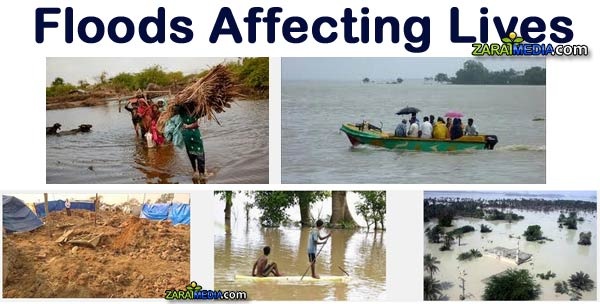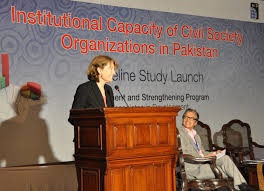Disaster not only cause economic damages but also contain the seeds of social and political unrest. As Pakistan is already facing vicious cycle of poverty according to UNDP survey almost 60% of Pakistanis live on less than 2 dollar a day and Economic Survey of Pakistan mentions the figure of Poverty 23%. Given such dismal state affairs it has become very important to address the issue of poverty which is deemed to increase in the wake of disastrous floods of 2010 and particularly poor segments can fall prey to the trap of extremist, militant organizations in the disguise of charity. Apart from tilting towards the fundamentalist trends the poor may lose their trust in the capacity and intention of government to provide them with total relief and rehabilitation. The early and effective measures like interest free loans through micro finance banks and reducing the prices of daily life articles will work as stepping stones towards the journey to revival of normal life.

National Disaster Management Authority is an executive arm of National Disaster Management Commission. In the face of rising disaster risks to Pakistan it has become urgent to allocate sufficient budget for NDMA so that it may work towards enhancing its capacity to meet the future challenges. The authority should expedite its efforts towards supporting out the hazardous points by means of engaging reputable national and international earth scientist and meteorologists through research. Apart from the NDMA should arrange awareness seminars every month at least at district levels so that the grass root level awareness may reach the people by which they come to know the ways of facing natural and man-caused disasters. This will greatly help in establishing social society’s link towards the means and ways to tackle the disasters
.3514_fa_rszd.jpg)
Civil society has recently emerged as an important factor of Pakistani’s socio-political structure. By help of media this section has started influencing government decisions and policies as evident from its active role in the lawyer’s movement to restore judiciary. In changing times when entire South Asia is at the risk of climatic changes, which ultimately result in disasters, Pakistan’s civil society should pay its due part in this newly emerged phenomenon of environment risks. This new trends will greatly help Pakistan towards her national integration because when disasters bring destruction they generate a wave of sympathy across the same country and people forget their ethnic, linguistic and religio -political bonds.

To cut the long story short it is a well recognize fact that Pakistan has become one of the most disaster prone countries of the world and hence is also susceptible to harms in her sociopolitical and economic fabric. The earthquake 2005 which rocked AJK and KPK and the floods of 2010 which caused one fifth of Pakistan submerge, are the evidences of this changing dimensions of threats. All the segments of society- media, civil society and charitable organizations have to join hands in order to rescue , relief and rehabilities disaster – affected people. This three-pronged strategy which includes rescue , relief and rehabilitation demands and= integrated level of cooperation among all the stakeholders to cope with such disastrous consequences caused either by natural disasters or by human follies.



